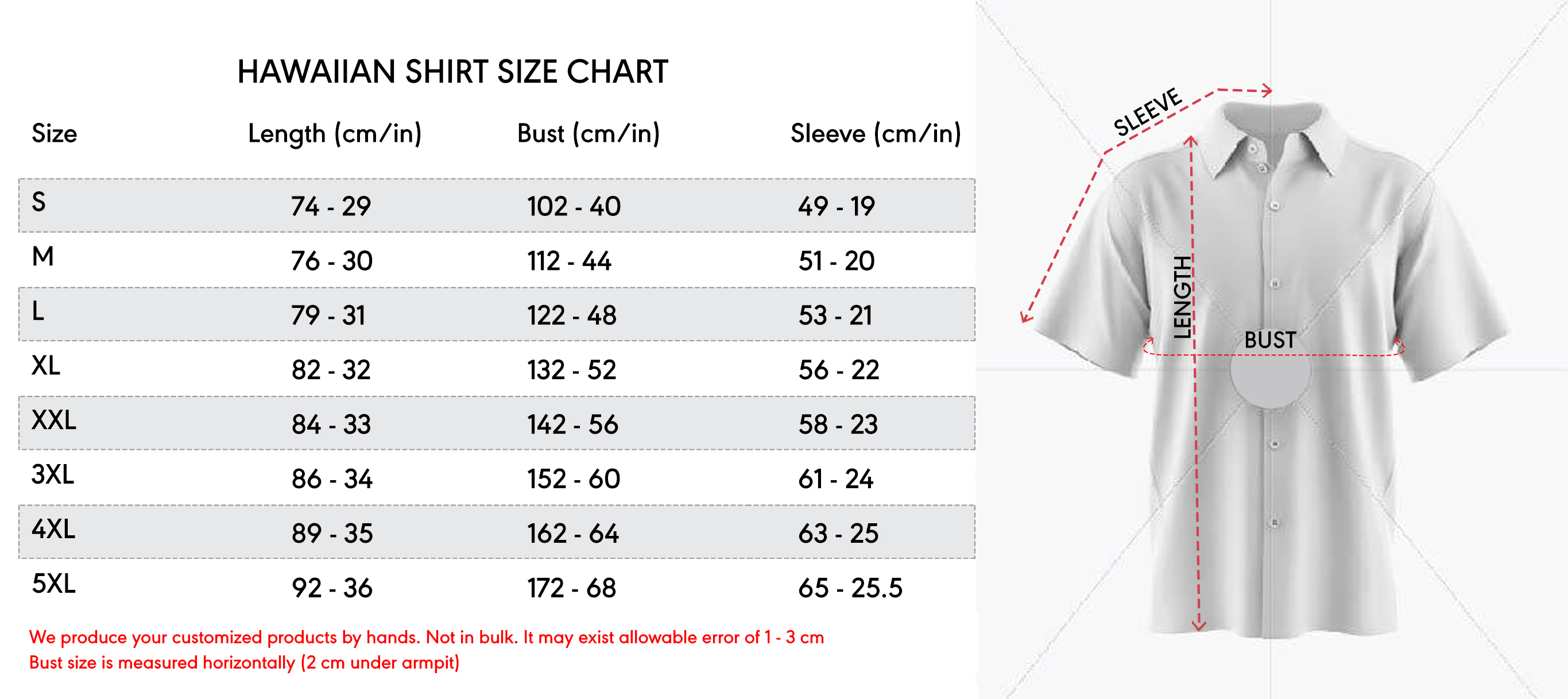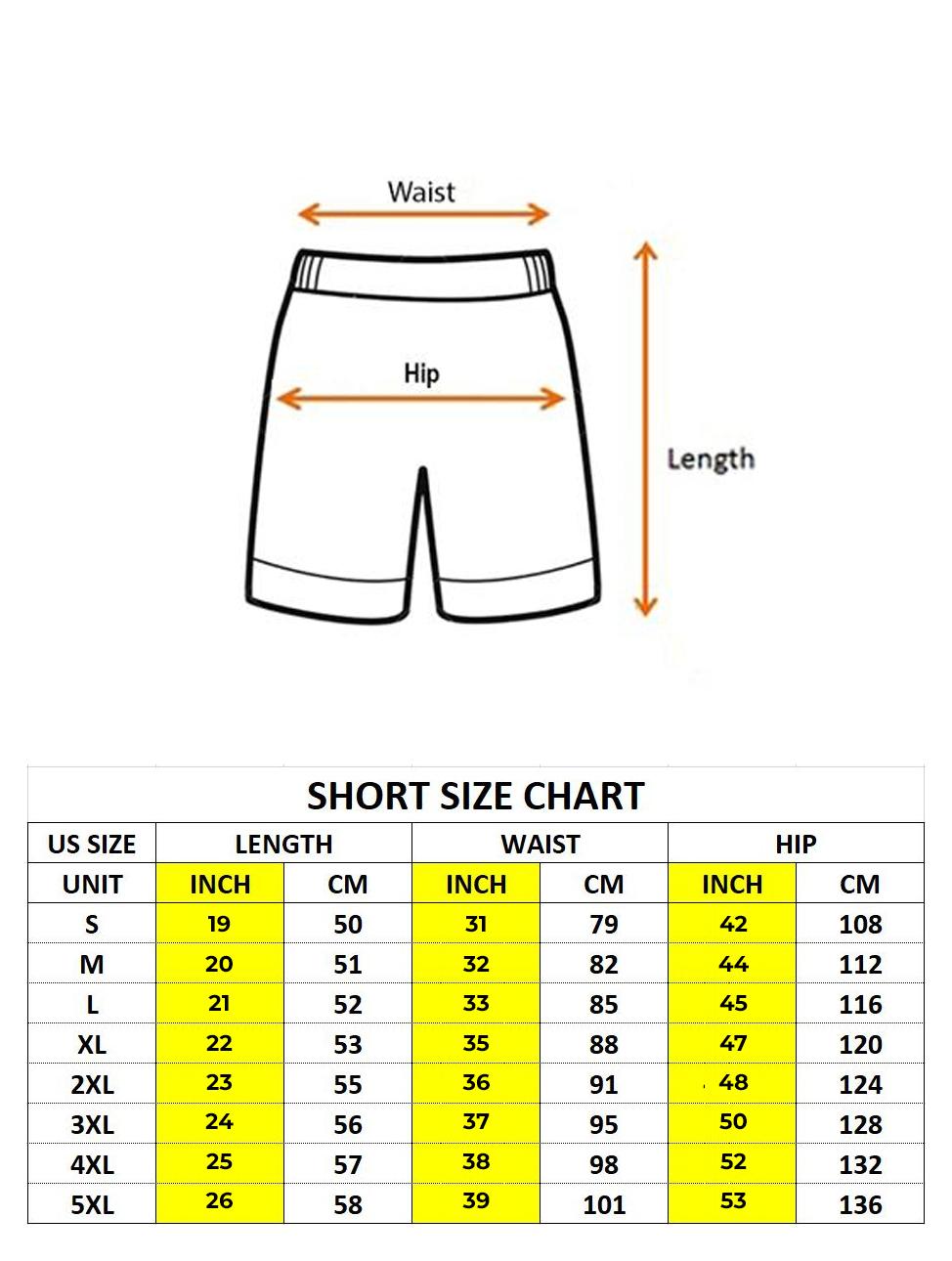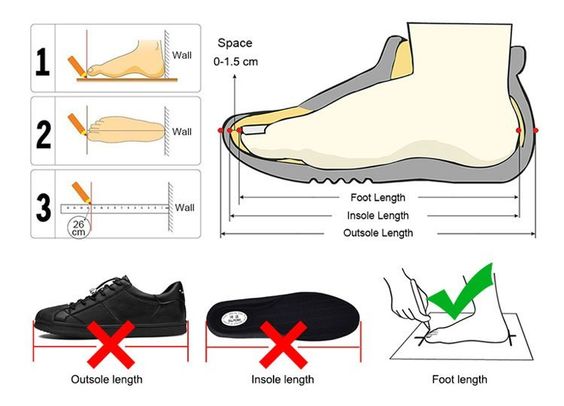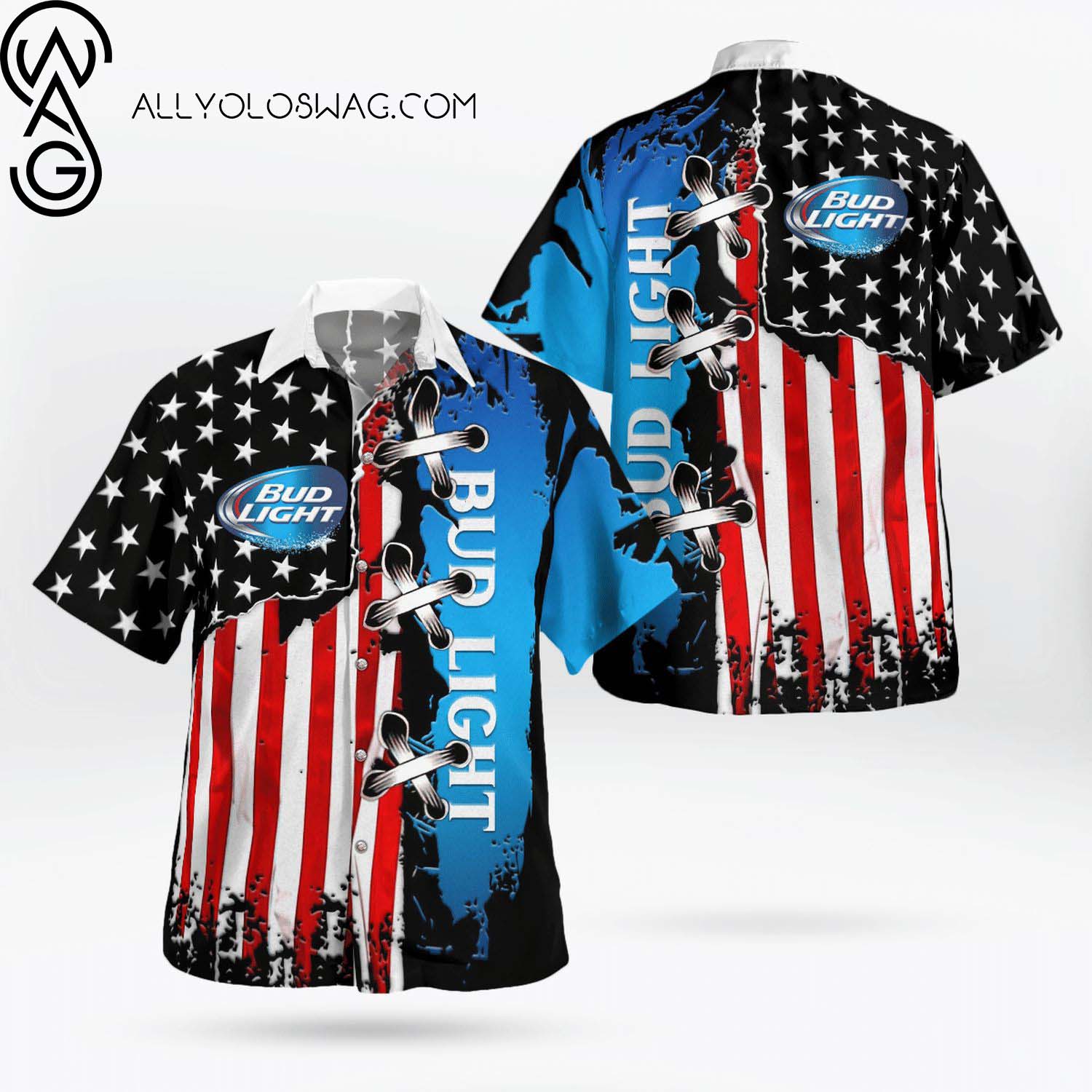Bud Light Beer All Over Print Aloha Hawaiian Shirt
$34.99
- Click here to see more items CLICK HERE
- The product will be printed based on the pattern on the mockup
- Scroll down to the Description to see the size chart more clearly
- Please check your SIZE CHART carefully before ordering
- There might be 2-3% difference according to manual measurement. Please note that slight color difference should be acceptable due to the light and screen.
- Choose DHL/FEDEX to ship Faster
- Homepage: Allyoloswag Store
More From Uncategorized
Uncategorized
Bud Light Beer All Over Print Aloha Hawaiian Shirt




Hawaiian Shirt
KEY FEATURES:
- Summer Short Sleeve Hawaiian Beach Shirt. Casual/Dating/Sun Beach Party/Hawaiian/suitable for a variety of occasions
- Suitable for special occasions such as Christmas, birthday, celebration, housewarming gift.
PRODUCT INFORMATION:
- 100% KATE SILK
- Casual button-down shirts /Soft decent Regular fit/Breathable/Good Quality/Men designer shirts /Good
- Choice for Summer/men Hawaiian shirts
Shorts
KEY FEATURES:
- Side pockets store essentials.
- A ribbed drawcord waistband adjusts for a snug fit, and side-seam pockets store your small essentials.
- Running, jogging, gym, workout, fitness, walking, outdoor living, everyday wear, exercise, layering, lounging, activewear, etc.
- Suitable for special occasions such as Christmas, birthday, celebration, housewarming gifts.
PRODUCT INFORMATION:
- 35% Cotton – 65% Polyester, soft and comfortable, without ever fading, cracking, peeling, or flaking-high quality.
- The colors are vibrant and won’t fade.
FLIP FLOPS
KEY FEATURES:
- Daily casual flip flops, beach thong sandals, pool slippers, shower shoes, water shoes.
- Enjoy the relaxation and freedom you can feel with flip flops!
- Suitable for special occasions such as Christmas, birthday, celebration, housewarming gift.
PRODUCT INFORMATION:
- Made of EVA, easy slip-on, it provides you with lightness, breathable and comfort when walking.
- Rubber strap provides a frictionless and smooth feeling between your toes, supporting your walking and providing the ultimate instant comfort feeling.
- The high-quality EVA outsole improves the durability and slips resistance of the flip flops.
The Hawaiian shirt (also known as a “Aloha shirt” in Hawaii) has become an internationally recognized icon of Hawaii. What began as a simple flower print shirt has taken on a life of its own, growing into what we now know as the Hawaiian shirt over the decades.
Hawaiian shirt fashion has grown with other fashion trends since its humble origins in the 1930s. Hawaiian shirts and other Hawaiian apparel come in a variety of styles. Hawaiian shirt, your very own Hawaiian shirt Wiki, has some intriguing facts about the history of Aloha shirts that you might not know.
EARLY HAWAIIAN CLOTHES
Natural Hawaiians made their clothing from native plants and trees before the introduction of woven fabrics from China, Japan, and the West. Men wore a malo, or loincloth, fashioned from tapa cloth derived from the inner bark of wauke trees. As you can expect, that type of fabric has a very different look and feel from the rayon or cotton used in most modern Hawaiian shirts.
Traditional Hawaiian ladies wore a pau skirt, which resembled a hula skirt. This sort of skirt can still be found at novelty shops and during Hawaiian luaus nowadays.
TAPA FOR EVERY OCCASION
Tapa was a robust, long-lasting, and versatile material. It was good for clothes and as a floor covering. It was also simple to adorn because it was composed of plants and had a very flat surface. Tapa cloth was the artist’s canvas throughout Polynesia, and individuals hand-painted their tapa creations with gorgeous colors and wonderful designs, gaining inspiration from the natural world. Tapa cloth frequently depicted plant life, notably tropical flowers and lush green leaves. These magnificent Polynesian tapa prints are the source of today’s vibrant, colorful patterns on Hawaiian shirts and outfits.
THE ALL-TIME FAVORITE PALAKA SHIRT
The Hawaiian Islands grew into a dominant plantation economy in the late 19th and early 20th centuries, exporting sugar, pineapple, and coffee all over the world. Plantation workers required a tough shirt that could withstand hard labor in the fields as well as Hawaii’s hot, frequently unpredictable weather.
The checkered blue and white denim palaka became Hawaii’s typical work shirt within a generation. Palaka Hawaiian shirts and blue denim trousers known as sailor-mokus, which were originally worn by field workers, had practically become the official national costume of Hawaii both on and off the plantation by the early 1930s.
FROM KIMONO TO ONO is a Japanese word that means “from kimono to
Shirts were hand-tailored in the early days of fashion. This might happen in the comfort of one’s own home or at a custom tailor’s business. These stores immediately sprang up all across the islands, especially in plantation towns and Honolulu. Newly accessible fabrics from throughout the world were sold at dry goods stores, including printed silk from Japan, raw silk, batik, and rayon from the United States mainland, and cotton cloth for kimonos and yukatas.
Hawaiian history had long been shaped by Asian immigrants, and apparel designs reflected this. Short- and long-sleeved shirts, as well as women’s skirts, were created using pre-printed textiles from China and Japan, and were based on Asian clothing styles. These bright blouses and dresses were the forerunners of today’s Aloha attire. On the islands, we say “ono” to describe something that is pleasantly cool.
Contact us:
- https://www.linkedin.com/in/swag-store-52068b237/
- https://www.pinterest.com/allyoloswagstore/
- https://twitter.com/StoreSwag2
- https://www.facebook.com/swagtshirtsandfurniture/
Homepage: https://allyoloswag.com/
Only logged in customers who have purchased this product may leave a review.


![[Top-selling] The Wizard of Oz Classic Full Print Stanley Cup](https://images.allyoloswag.com/2024/04/Q26t2cKc-the-wizard-of-oz-classic-full-print-stanley-cup-1-9xKJI-300x300.jpg)
![[Top-selling] The Who Rock Band For Fan All Over Printed Stanley Cup](https://images.allyoloswag.com/2024/04/VlCjsRlI-the-who-rock-band-for-fan-all-over-printed-stanley-cup-1-X5TN2-300x300.jpg)
![[Top-selling] The Magic School Bus Rides Again Street Style Stanley Cup](https://images.allyoloswag.com/2024/04/7TxKkQEL-the-magic-school-bus-rides-again-street-style-stanley-cup-1-DGI4p-300x300.jpg)
![[Top-selling] The Magic School Bus Rides Again Full Printed Stanley Cup](https://images.allyoloswag.com/2024/04/MCZpD4uy-the-magic-school-bus-rides-again-full-printed-stanley-cup-1-W829X-300x300.jpg)
![[Top-selling] The Little Mermaid Street Style All Over Print Stanley Cup](https://images.allyoloswag.com/2024/04/qef3fV2M-the-little-mermaid-street-style-all-over-print-stanley-cup-1-tyPvl-300x300.jpg)
![[Top-selling] The Grinch Combo Full Printing Stanley Cup](https://images.allyoloswag.com/2024/04/bnVpPJQT-the-grinch-combo-full-printing-stanley-cup-1-JuL7U-300x300.jpg)
Reviews
There are no reviews yet.